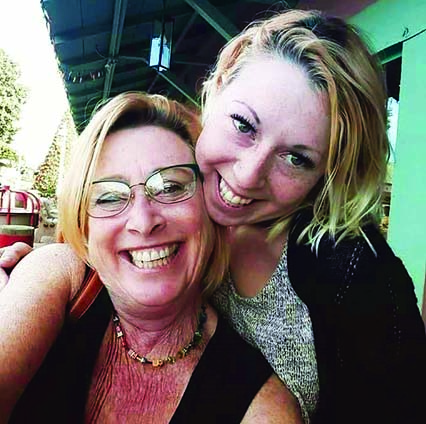I recently watched a touching documentary, Tea with the Dames, an intimate chat between four legendary British actresses, Judi Dench, Maggie Smith, Joan Plowright, and Eileen Atkins, all of whom have...
I recently watched a touching documentary, Tea with the Dames, an intimate chat between four legendary British actresses, Judi Dench, Maggie Smith, Joan Plowright, and Eileen Atkins, all of whom have been knighted. I found it a treat to momentarily peek into the lives of four esteemed thespians.
At one point the subject of fear came up. Judi Dench admitted, “I still feel quite anxious when I have to act in a film.” I was stunned! Here, one of the world’s finest actresses, who has often been cast as the Queen of England, and exudes utter confidence in her roles, now 85 years of age, is still plagued by fear! To my further surprise, her peers, also among the most respected actresses in the world, confessed that they, too, are camera shy.
This shocking revelation confirmed to me a phenomenon I see in many successful professionals: Even while the voice of fear pursues us, we can go on to create huge success. That voice often disguises itself as “fraud guilt”—the idea that “I am a phony and if people knew the truth about me, they would
not pay me, like me, or want me.” A survey of top Hollywood movie studio CEO’s asked, “What do you fear most?” The most common answer was,
“I am afraid that people will find out I don’t really know what I am doing.” Meanwhile these execs were turning our fabulous movies, earning many millions of dollars for their studios.
Success is not the liar. Fear is. Don Juan, the mentor in Carlos Castaneda’s classic series of books of conversations with his Yaqui shaman teacher, told Castaneda, “Fear never really goes away. It sits on your shoulder and whispers in your ear, trying to frighten and belittle you. The spiritual warrior hears the voice of fear, but does not give in to it.”
Phil Alden Robinson, writer and director of one of my favorite films, Field of Dreams, recounts that during filming, “Every night I went back to my room and thought I had failed.” Meanwhile, Robinson was turning out a blockbuster film that was nominated for three Academy Awards and became a classic.
A Course in Miracles tells us there are only two emotions, and thus only two voices we might listen to: love and fear. We all have a fear voice that chides us with all kinds of threats. At some point we must stop running from the fear voice and confront it. The question is not, “Does fear taunt you?” The question is, “Are you willing to move ahead anyway?” My mentor Hilda Charlton used to say, “The dogs bark, and the caravan moves on.”
The deepest purpose of our life is to rip the mask off of fear to reveal the love it hides. We must cease to live as if we are small, and claim our authentic magnificence. Even while scary newscasts and prophecies bite at our heels, we must move on.
At the height of the Beatles’ illustrious career, Ringo Starr decided he wasn’t fit to be in a band as talented as the Beatles. He went to John Lennon
and told him, “I’m leaving the group because I’m not playing well and I feel unloved and out of it, and you three are really close.” John replied,
“I thought it was you three!” Then Ringo told Paul McCartney he felt like an outsider. Paul replied, “I thought it was you three!” Ringo didn’t bother going to George Harrison, who might have given a similar reply. The idea that any of these four — Ringo, John, Paul, or George — was not a “real” Beatle seems laughable and ludicrous, since each of those musicians was talented in his own way, and their unique synergy made the Beatles the
most successful entertainers in history. But each of them had to face and deal with his own demons. If even the Beatles suffered fraud guilt, you can see what a liar that voice is, and why you should give it no credence and not let it stop you on your own path to success.
A Course in Miracles also tells us, “fear is never justified in any form,” and asks us to remember, “I am at home. Fear is the stranger here.” Emerson
boldly suggested, “Do the thing you fear, and the death of fear is certain.” Consider all the things you have feared, and how many of them have come true. And of the very small percentage that have, you have continued to move ahead, and learned valuable lessons from the experience. In the human experience we all feel fear at some time. How you deal with it determines whether or it has power over your life, or you claim dominion over
it. Fear and love cannot coexist in the same mind or place. The more we choose love, the more that becomes our prevalent experience. We have been
taught by word or example that fear is real and love is the illusion. But the world is often inside out and upside down. Only love speaks truth.
Alan Cohen is the bestselling author of the newly-released Spirit Means Business. For more information on Alan’s books and videos, free daily inspirational quotes, online courses, and weekly radio show, visit www.alancohen.com.































